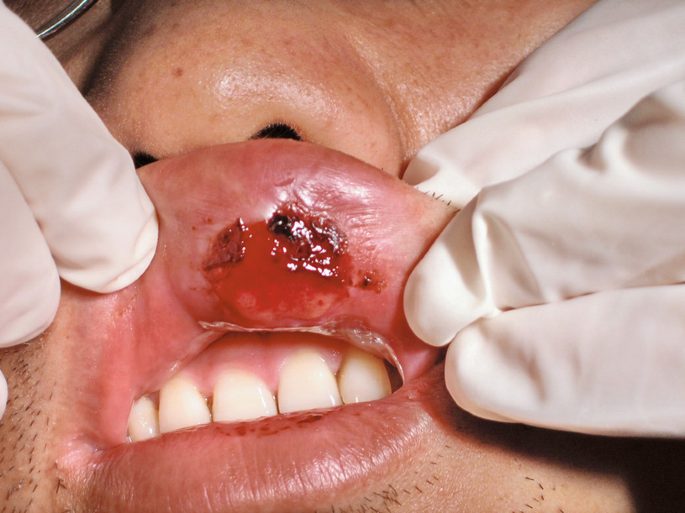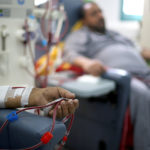Understanding the Primary Signs and Symptoms
On Primary Signs Of Syphilis; understand that syphilis is a bacterial infection primarily spread through sexual contact. It is caused by the bacterium Treponema pallidum and is known for progressing through distinct stages if left untreated. The disease commonly begins with a sore, which often goes unnoticed due to its painless nature.
These sores typically appear in areas like the genitals, rectum, or mouth, and syphilis spreads through direct contact with these sores.
In addition to sexual transmission, syphilis can also be passed from an infected mother to her baby during pregnancy, childbirth, or, in some rare cases, through breastfeeding.
One of the challenges with syphilis is that, after the initial infection, the bacteria can remain dormant in the body for years without showing any symptoms. During this period, individuals may feel fine and may not even be aware that they carry the infection.
However, if left untreated, syphilis can become active again, progressing into more serious stages that can affect vital organs such as the heart, brain, and liver, leading to permanent damage or even death.
Early syphilis, when detected promptly, is highly treatable, often with a simple injection of penicillin. This highlights the importance of recognizing the primary signs of syphilis early on and seeking medical attention.
Regular testing for sexually active individuals and pregnant people is crucial for early diagnosis and preventing complications. All pregnant individuals should undergo syphilis testing at their first prenatal appointment to ensure the health of both the mother and the baby.
Recognizing the primary signs of syphilis is essential for effective treatment and to prevent the spread of the disease. A timely diagnosis can help avoid the severe consequences associated with untreated syphilis and provide the necessary care to protect overall health.
Symptoms of Syphilis: Stages and Progression
Syphilis progresses in distinct stages, each with its own set of symptoms. However, the stages can overlap, and symptoms don’t always occur in a predictable order. In fact, it’s possible to be infected with syphilis bacteria for years without experiencing noticeable symptoms.
Recognizing the primary signs of syphilis early on is key to seeking timely treatment and preventing complications. Here’s a breakdown of the symptoms at each stage:
Primary Syphilis
The first sign of syphilis is typically a small, painless sore known as a chancre (SHANG-kur). This sore forms at the site where the syphilis bacteria entered the body, which could be the genital area, rectum, or mouth.
Most people develop only one chancre, but some may have multiple sores. The chancre appears about 3 weeks after exposure to the bacteria and is often not noticed because it is painless. It can also be hidden inside the vagina or rectum, making it difficult to see.
The chancre generally heals on its own within 3 to 6 weeks, but even if the sore disappears, the bacteria remain in the body, progressing to the next stage if left untreated.
Secondary Syphilis
Following the healing of the chancre, or sometimes appearing shortly after, a rash may develop. This rash is one of the primary signs of syphilis in its secondary stage. The rash often:
- Is not itchy
- Appears rough, red, or reddish-brown
- May be faint and difficult to see
- Begins on the torso (chest, stomach, back, and pelvis) and may spread to the limbs, palms, and soles of the feet
In addition to the rash, you may experience other secondary syphilis symptoms, such as:
- Wartlike sores in the mouth or genital area
- Hair loss
- Muscle aches
- Fever
- Sore throat
- Tiredness (fatigue)
- Weight loss
- Swollen lymph nodes
Symptoms of secondary syphilis may go away on their own, but without treatment, they can reappear and persist for months or even years.
Latent Syphilis
Without treatment, syphilis moves from the secondary stage to the latent stage (also known as the hidden stage). During this period, there are no symptoms, and the individual may feel completely healthy. The latent stage can last for many years, and in some cases, symptoms may never resurface.
However, even though the disease appears dormant, it can still cause severe damage to the body’s organs if left untreated.
Tertiary Syphilis
Up to 30% to 40% of people who do not receive treatment for syphilis will eventually develop tertiary syphilis, which can occur many years after the initial infection. This stage is also called late syphilis and is associated with serious complications. Tertiary syphilis can cause:
- Brain damage
- Nerve damage
- Vision problems or blindness
- Heart disease
- Blood vessel damage
- Liver damage
- Bone and joint problems
These complications can be life-threatening and cause irreversible harm to the body, which is why it’s crucial to seek treatment early on.
Importance of Early Detection and Treatment
While syphilis can progress through these stages, the disease is highly treatable, especially in its early stages. If you notice any primary signs of syphilis—like a painless chancre or a rash—it’s essential to seek medical attention right away.
Testing and treatment with antibiotics, usually penicillin, can cure syphilis and prevent further complications, including the dangerous effects of tertiary syphilis. Regular testing, especially for sexually active individuals and pregnant people, can help detect syphilis early and ensure effective treatment.
Syphilis and Its Potential for Spread
Syphilis, if left untreated, can spread beyond the initial infection site, leading to severe complications in various parts of the body.
The disease can affect the brain, spinal cord, eyes, and other organs, potentially resulting in life-threatening health issues. It’s important to address syphilis as soon as possible to avoid these risks.
Congenital Syphilis
One of the most serious ways syphilis can spread is through congenital syphilis, which occurs when a pregnant person passes the infection to their baby. This can happen through the placenta, the organ that supplies nutrients and oxygen to the baby in the womb. Syphilis can also be transmitted during childbirth.
Babies with congenital syphilis might initially appear healthy and show no symptoms. However, without prompt treatment, the infection can cause severe complications, including:
- Sores and rashes on the skin
- Fever
- Jaundice (discoloration of the skin and eyes)
- Anemia (a condition where there aren’t enough red blood cells)
- Swollen spleen and liver
- Rhinitis (sneezing and a runny nose)
Later-stage symptoms can be even more devastating and include:
- Deafness
- Dental issues
- Saddle nose (a condition where the bridge of the nose collapses)
In severe cases, babies with congenital syphilis may be born prematurely, or the infection could lead to stillbirth. Tragically, some infected babies may not survive after birth if treatment is delayed or not administered.
When to See a Doctor
It’s essential to seek medical attention as soon as you notice any symptoms of syphilis, whether in yourself or your child. If you or your baby experience unusual discharge, sores, or rashes—especially in the genital or groin area—seek medical help immediately. Early detection and treatment are key to preventing serious health problems.
You should also consider getting tested for syphilis if you:
- Have had sexual contact with someone who may have syphilis
- Are living with another sexually transmitted infection (STI), such as HIV
- Are pregnant, as testing is essential during pregnancy
- Engage in sexual activity with multiple partners
- Have had unprotected sex (without a condom)
Prompt testing and treatment can ensure that syphilis does not lead to irreversible damage, and protect both you and your baby from the dangers of untreated infection. Regular testing is crucial for anyone at risk, as early treatment with antibiotics, particularly penicillin, can cure syphilis and prevent its spread.
Causes of Syphilis
Syphilis is caused by the bacterium Treponema pallidum. The most common way the infection spreads is through direct contact with a syphilis sore during vaginal, oral, or anal sex. The bacteria can enter the body through small cuts, scrapes, or the moist inner lining of various body parts, such as the genital area, mouth, or rectum.
Syphilis is most contagious during its primary and secondary stages, but it can also be transmitted during the early latent stage, which occurs within a year of infection.
While it is less common, syphilis can sometimes spread through kissing or touching an active sore located on the lips, tongue, mouth, breasts, or genital area. Additionally, syphilis can be passed from an infected mother to her baby during pregnancy, childbirth, and occasionally through breastfeeding.
It’s important to note that syphilis cannot be spread through casual contact with items that an infected person has touched. For example, you cannot contract syphilis by sharing toilets, bathtubs, eating utensils, doorknobs, swimming pools, or hot tubs.

Once syphilis is successfully treated, it does not return on its own. However, reinfection can occur if there is contact with someone who has an active syphilis sore.
Risk Factors for Syphilis
The risk of contracting syphilis is higher if you engage in certain behaviors or have specific conditions. These risk factors include:
- Unprotected sex: Having sex without the use of condoms increases the likelihood of contracting syphilis.
- Multiple sexual partners: The more sexual partners you have, the greater your risk.
- Living with HIV: People with HIV, especially if untreated, are more susceptible to contracting syphilis and may experience more severe consequences.
- Men who have sex with men (MSM): The risk is higher for men who have sex with other men, partly due to factors such as limited access to healthcare, less condom usage, and high-risk behaviors associated with finding partners through social media or dating apps.
Complications of Syphilis
If syphilis is left untreated, it can lead to severe health complications, some of which are life-threatening. Untreated syphilis can also increase the risk of contracting HIV and cause significant problems during pregnancy. Although treatment can prevent further damage, it cannot reverse the harm that has already occurred.
- Gummas (Small Bumps or Growths)
In the late stages of syphilis, rare gummas (soft, tumor-like growths) can form on the skin, bones, liver, or other organs. These gummas often resolve with treatment using antibiotics.
- Neurological Problems
Syphilis can affect the brain, spinal cord, and other parts of the nervous system. Symptoms of neurosyphilis may include:
- Headaches
- Stroke
- Meningitis (inflammation of the protective tissues around the brain and spinal cord)
- Confusion, personality changes, or difficulty focusing
- Dementia-like symptoms, such as memory loss and impaired decision-making
- Paralysis or loss of movement in certain body parts
- Erectile dysfunction
- Bladder problems
- Eye Problems (Ocular Syphilis)
Syphilis can also affect the eyes, leading to ocular syphilis. Symptoms may include:
- Eye pain or redness
- Vision changes, including blurred vision or vision loss
- Blindness
- Ear Problems (Otosyphilis)
When syphilis spreads to the ears, it causes otosyphilis, which can result in:
- Hearing loss
- Tinnitus (ringing in the ears)
- Vertigo (dizziness or a spinning sensation)
- Heart and Blood Vessel Problems
Untreated syphilis can lead to severe cardiovascular complications, including:
- Aortic aneurysm (bulging and swelling of the aorta, the body’s major artery)
- Damage to heart valves, leading to complications like heart failure or other cardiovascular diseases
- HIV Infection
Having syphilis sores on the genitals increases the risk of both contracting and spreading HIV. Syphilis sores are prone to bleeding, which makes it easier for HIV to enter the bloodstream during sexual contact.
Pregnancy and Childbirth Complications
If you’re pregnant and have syphilis, there’s a significant risk of passing the infection to your unborn baby, a condition known as congenital syphilis. This can cause severe complications, including:
- Miscarriage
- Stillbirth
- Death of the newborn within the first few days after birth
Congenital syphilis can have long-term effects on a baby’s health and development, so it’s crucial to get tested and treated for syphilis during pregnancy to protect both yourself and your baby.
Prevention of Syphilis
Currently, there is no vaccine for syphilis. However, there are several steps you can take to significantly reduce your risk of contracting or spreading the infection:
- Abstinence or Safe Sex Practices
The only surefire way to avoid syphilis transmission is abstinence—avoiding sexual activity altogether. If you are sexually active, practicing safer sex is essential.
This means having a long-term, monogamous relationship with a partner who has been tested and is free of syphilis and other sexually transmitted infections (STIs). Before engaging in sexual activity with a new partner, both individuals should get tested for syphilis and other STIs.
- Use of Latex Condoms
Using latex condoms correctly and consistently can reduce the risk of syphilis transmission, but it’s important to note that condoms only protect against the spread of syphilis if they cover the infected areas where sores are located. Other forms of birth control do not reduce the risk of syphilis.
- Avoid Alcohol and Street Drugs
Excessive alcohol consumption and the use of street drugs can impair judgment and lead to risky sexual behavior, such as unprotected sex. Limiting or avoiding these substances reduces the likelihood of engaging in unsafe sexual practices.
- Avoid Douching
Douching, which involves washing or cleaning the vagina with water or other fluids, can disrupt the natural balance of healthy bacteria in the vaginal area. This disruption may increase the risk of acquiring STIs, including syphilis.
- Breastfeeding with Caution
If you have syphilis and have sores on one or both breasts, syphilis can be passed to your baby during breastfeeding.
To prevent this, express or pump breast milk from the affected breast(s) until the sores have healed. If you use a breast pump, discard any milk that comes into contact with the infected area.
- Doxycycline for High-Risk Groups
For individuals at higher risk of contracting syphilis, such as men who have sex with men or transgender women, taking doxycycline within 3 days of unprotected sexual activity may help prevent syphilis infection. Doxycycline can significantly reduce the likelihood of contracting syphilis when taken as prescribed by a healthcare provider.
Partner Notification
If you test positive for syphilis, it’s critical to inform your sexual partners, so they can also get tested and treated. This includes current partners as well as any partners you’ve had in the last three months to one year. Treating your partners helps prevent the spread of syphilis and reduces the risk of reinfection.
After you are diagnosed with syphilis, your local health department may contact you to assist in notifying your partners confidentially.
You can request that the health department handle the notification without revealing your identity. Alternatively, you may notify your partners yourself, or you can do so with the help of a health department employee.
Partner notification is a vital step in preventing the spread of syphilis and can also provide your partners with the support and treatment they need. Since syphilis can be contracted more than once, informing partners helps lower your risk of being reinfected.
Screening Tests for Pregnant People
Because syphilis can be asymptomatic, meaning you might not have noticeable symptoms, it’s important to get tested, especially if you are pregnant. Syphilis can have devastating effects on unborn babies, so regular screenings during pregnancy are crucial.
Health authorities recommend that all pregnant individuals be tested for syphilis to ensure the safety of both the parent and the baby.
By following preventive measures, practicing safe sex, and getting tested, you can help protect yourself, your sexual partners, and your future children from the harmful effects of syphilis.
Conclusion
Syphilis is a serious infection that, if left untreated, can cause irreversible damage to organs and tissues.
However, with early detection and appropriate treatment, it is a manageable condition. Preventing syphilis largely involves safe sexual practices, such as using condoms and getting regular screenings, especially if you engage in high-risk behaviors or have multiple sexual partners.

A graduate of Computer Science and Information Management Technology. Diploma – Caregiving, Certificates – Dementia and Diabetes Awareness and Management. A researcher, blogger, songwriter, singer and acoustic guitarist. Born in an environment where natural talents such as healing are imparted at our natural birth. This natural talents of healing is the result of our genetic inheritance and the training from family environment.











